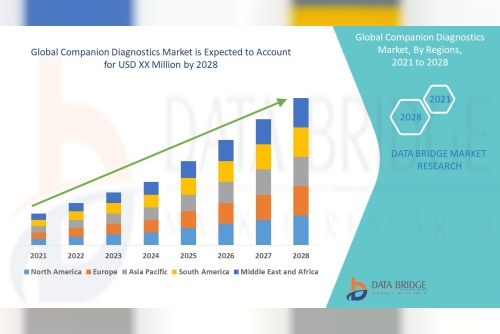Particularly for services like customer support and software quality assurance, there has been an increase in demand for outsourcing in recent years. Part of the reason for this is that businesses desire to cut costs by outsourcing some of their essential operations to places with lower cost of living.
However, it's partly because hiring has grown extremely competitive and local talent might be hard to come by in some sectors. You'll probably think about offshore outsourcing services if you require a third party to assist with your operations.
Let's examine offshore outsourcing in more detail and see how it stacks up against onshore and nearshore options.
Offshore Outsourcing: What Is It Actually?The process of employing a third party in another nation to carry out particular business operations is known as offshore outsourcing. This is distinct from offshoring, in which a company relocates all of its activities to an offshore site in order to take advantage of cheaper labor costs, lower operating costs, or better tax treatment in another nation.
With offshore outsourcing, a business keeps its headquarters in its home nation while collaborating with a service provider in another country to manage a particular segment of the business' operations.
When they are having problems finding top candidates at home, several organizations turn to offshore outsourcing to access a global talent pool. As an illustration, a US-based company might hire a call center in the Philippines to handle its customer support needs.
Reasons of Offshore Outsourcing
Lower labor cost
76%
Staff augmentation
62%
Access to high quality employees
55%
Access to technology
42%
Meet customer requirements
35%
The Process of Offshore Outsourcing Services
Depending on your business model, outsourcing can take a variety of shapes. It may be as straightforward as contracting with a web development team for a single project or it might involve maintaining a long-term partnership with a business process outsourcing (BPO) firm that specializes in customer care.
Along with offshore outsourcing, onshore outsourcing and nearshore outsourcing are two other possibilities to take into account.
Almost 54% of all businesses contact customers through outside support staff.
Businesses spent $75.2 billion on security outsourcing globally in 2017.
In the United States, there are 59 million independent contractors.
78% of companies worldwide are pleased with their outsourcing partners.
5 Benefits of Offshore Outsourcing
The following are the key advantages of outsourcing corporate operations to a foreign country:
1. Low labor costsThe greatest services can be obtained at cheaper labor costs by hiring an offshore outsourcing team from Asia or an underdeveloped Eastern European nation. This is mostly due to the lower legal pay in these regions.
2. Branches of expertise
Hiring specialist experts in software development or any other IT field is typically challenging, particularly in domestic regions. Therefore, for these technological business processes, the vast majority of companies opt to outsourcing professionals.
3. Clocks workThe fact that an offshore outsourcing team's professionals are accessible around-the-clock is one of the most significant advantages. The typical business hours have expanded because to the internet.
4. Improved efficiency
Businesses frequently find themselves in the situation where one individual must handle several activities because they lack the internal skills to do so. Managers, for instance, must do marketing duties.
5. Types of Businesses
Offshore outsourcing allows firms the freedom to concentrate on their key initiatives while handling all other development-related activities. As in the case of a business hiring an external developer.
4 Significant Benefits of Offshore Outsourcing
1.EfficienciesThe main factor influencing why most businesses choose offshore outsourcing is cost savings from many business perspectives. The lower cost of living in Asia's rising countries may increase the profitability of foreign firms.
2. Skilled workforceAccording to the Bureau of Labor Statistics, there won't be enough IT engineers in the US by 2026, when there will be a deficit of more than 1.2 million.
You can contact professionals with the requisite skills by having these technological procedures performed abroad.
3. FunctionalityBy lowering overhead costs through offshore outsourcing, organizations are better able to focus on their most important business operations.
In order to free up valuable resources for more complex operations and increase profits, routine back-office tasks may be outsourced.
4. Economical Businesses no longer operate during the normal 9 a.m. to 5 p.m. Monday through Friday business hours due to the internet. Even at three in the morning, customers want a quick resolution to their problems.
Global Worldwide and General Outsourcing Statistics1. $92.5 billion worldwide outsourcing marketThe market value was only $76.9 billion in 2016, which was the lowest point in the previous ten years. 2014 had the greatest market value of the decade at $104.6 billion.
2. The worldwide BPO market generated $26 billion in salesSpecific business operations are covered under this subsection of outsourcing, which is typically used for internal (back office) or customer-facing operations (front office).
3. 12% of businesses completely outsourced their payroll
These statistics on payroll outsourcing were obtained from a poll of 1,892 people. The statistics also show that only 8% of companies outsourced their payroll operations in 2015.
What Makes Outsourcing Important Now More Than EverThe COVID-19 crisis is still showing off how weak centralized supply chains and commercial operations are. 14% of the experts experienced significant business disruptions on April 1st, while another 21% had already begun to anticipate significant problems.
Businesses are still looking for ways to prosper in the situation as a means of coping with the predicament. Outsourcing business operations is one such solution.
Final Thoughts
In the information technology sector, creating, supplying, and managing IT services at much lower costs is the main goal of offshore outsourcing as a business strategy in SunBD.
This is often done by conducting an online search for service providers, making a shortlist of those providers, then contacting those providers and communicating with them via email, phone, or online video call.
Faqs
How do outsourcing and offshore differ from one another?
You can save time and money via offshoring, which is the practice of employing workers from other countries to collaborate with your local staff. Your new team members integrate into the group and become familiar with the culture and values of your business. No matter where the work is located, outsourcing involves contracting it out to a different business. When a corporation lacks the necessary skill set to finish a project, they typically try to outsource it.
Are the staff members that work abroad able to communicate in English?
We make sure to only work with offshore teams who are fluent in English. There would be no communication issues of any kind because every member of our international team is a fluent English speaker.
What advantages come with outsourcing to SunBD?
low initial costs
command over your company's operations
Rapid offshore team formation High process efficiency
very flexible
Put the customer experience first
enormous cost savings
elevated capability
True competence and experience
The highly qualified and seasoned SunBD team collaborates with SME clients to develop and provide the best possible business solutions. We closely collaborate with our clients to understand their business requirements and promptly deliver the best outsourcing resources.
What do I need to know about outsourcing and offshoring?
You should learn more about the advantages and differences of offshoring and outsourcing, as well as how these methods will impact your company's operations and objectives, before deciding to use one as part of your global business plan.












